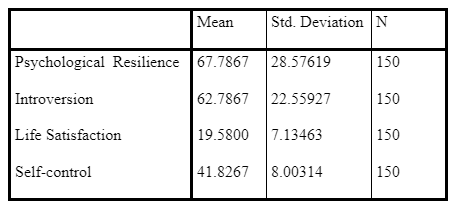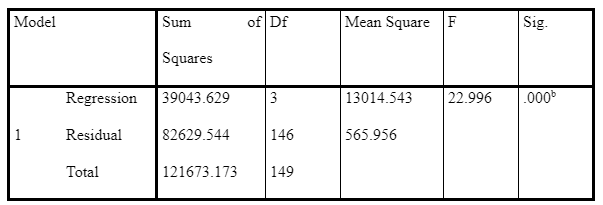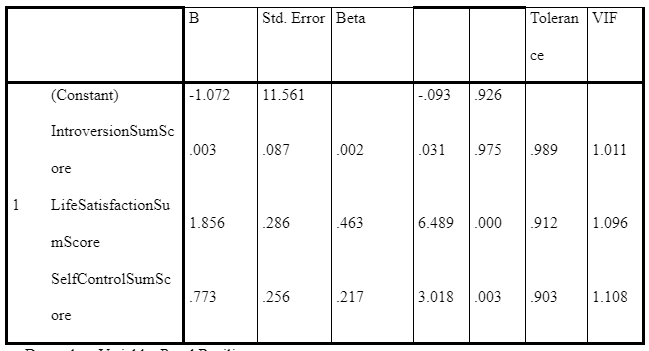Building Mental Fortitude: An In-Depth Look at Psychological Resilience and Coping Strategies
Psychological resilience refers to the ability of an individual to emotionally and mentally cope with crisis or even get back to her normal condition (pre-crisis status) as quickly as possible (Kilpatrick et al., 2011). This trait exists when an individual utilizes their behaviour and mental processes in enhancing personal assets as well as protecting oneself from the potential effects which can harm an individual such as stress. Simply, psychological resilience is observed in individuals who develop behavioural and psychological capabilities which allow them to be calm at the time of crises and as well cope with the occurrence without long-term negative consequences. If you are looking for psychology dissertation help, understanding resilience and its factors can be crucial. Psychologists reveal that resilient people are better in terms of handling adversity and rebuilding their lives after a fatal occurrence (Hölzel et al., 2011). In most cases, dealing with changes is inevitable and every individual encounters some varying degrees of setbacks. Some of the setbacks are minor while others are disastrous. However, the way individuals deal with these challenges plays a crucial role in both the outcome and the long-term psychological consequences.
Regardless of an individual's ability to come with challenges, some factors determine an individual ability to be resilient. Studies have suggested that resilient behaviours are not inborn behaviour though it is common among many individuals (Iftikhar, 2019). Based on the study, resilience is common among several people and individuals are capable of learning this behaviour and skills which enable an individual to become more resilient. For instance, social support is identified as a factor that contributes to resilience (Weinstein & Ryan, 2010). Furthermore, people who are emotionally as well as mentally strong tend to have friends and family support which greatly assist in promoting their resilience in times of trouble and challenges. Other studies have identified the ability to hold positive individual view, the ability to make realistic strategies and sticking to them, having an internal locus of control, viewing an individual as worrier other than victim, having excellent communication skills and having high emotional intelligence as some of the potential predictors of psychological resilience (Iftikhar, 2019). Other predictors include introversion, trait mindfulness, and self-control among others.
Studies have indicated that, resilient is very crucial to an individual in that, it results in improved learning as well as academic performance, it is related to lower absences especially in workplace and school due to low chances of sickness, results to reduced risky behaviour such as drug misuse and alcohol intake which are aimed at reducing stress (Weinstein & Ryan, 2010). Moreover, people with a high level of resilience tend to be more involved in family and community activities hence improving community togetherness and lastly high resilience is linked to low mortality rate as well as increased physical health.
Besides, studies have revealed that there are positive psychological changes that occur while an individual is experiencing hardship (Quoidbach et al., 2010). Regardless of the negative consequences, there is a growth known as posttraumatic growth. This growth increases perceptions of individual strength, appreciation of life, as well as meaningful relationships. However, the study suggests that this growth is difficult to measure since it depends on several factors and as well, it is measured in different based on contexts (Weinstein & Ryan, 2010). This challenge has therefore limited the number of studies that test potential predictors of psychological resilience. This, therefore, indicate limited knowledge and a lack of valuable contribution to human psychology and resilience (Barker, 2017). This study is aimed at testing potential predictors of psychological resilience such as introversion, trait mindfulness, and self-control. This creates a hypothesis that; there is a positive relationship between some potential predictors of psychological resilience such as introversion, trait mindfulness, and self-regulation and the ability of an individual to cope with challenges.

Methods
Design
A correlational, cross-sectional design comprising a battery of psychometric questionnaires was employed to measure all predictor (introversion, trait mindfulness, self-control) and outcome variables (psychological resilience).
Participants
150 participants were recruited via opportunity sampling at a UK university, with a mean age of 23 (SD = 4.32). The sample comprised 48% of females.
Procedure
Online survey software was used to create a questionnaire containing all the relevant psychometric scales. A series of demographic questions were also included (age, gender). A link to the survey was sent out to students using the university Twitter account.
Materials
Psychological resilience
Psychological resilience was measured using the Resilience Scale (RS). This scale has been shown to possess good psychometric properties such as internal consistency, content validity, and unidimensionality. The scale consists of 25 items and uses a 7-point Likert scale to capture agreement. The scale measures an individual's ability to adapt well in the face of adversity, trauma, tragedy, threats or significant sources of stress.
Introversion
Introversion was measured using an Introversion Subscale. This has been shown to possess good psychometric properties such as internal consistency, content validity, and unidimensionality. The scale consists of 15 questions and uses a 7-point Likert scale to capture responses. An example question would be ‘do you try to avoid social situations?’ Responses for each question are summed to give an overall introversion score. The higher the score the more introvert an individual is.
Take a deeper dive into Mental Fortitude with our additional resources.
Trait mindfulness
Trait mindfulness was measured using the Trait Mindfulness Survey (TMS). This has been shown to possess good psychometric properties such as internal consistency, content validity, and unidimensionality. The scale measures an individual’s capacity for intentional present-moment non-judgmental awareness.
Self-control
Self-control was measured using the Self-control inventory (SCI). This has been shown to possess good psychometric properties such as internal consistency, content validity, and unidimensionality. The scale consists of 10 items and uses a 7-point Likert scale to capture the level of agreement.
Results
The study suggests that from the results which were obtained from 150 participants and who were recruited via opportunity sampling at a UK university, with a mean age of 23 (SD = 4.32) and with 48% females, there was Psychological Resilience of 67.7867 while the standard deviation was 28.5761. Moreover, from the participants, there was an Introversion of 62.7867 while the standard deviation was 22.55927. Moreover, the score for Life Satisfaction has a mean of 19.580 and a standard deviation of 7.13463. Lastly, the study showed a Self-control mean of 41.8267 and a standard deviation of 8.0031 among the 150 participants.
Descriptive Statistics

For the purpose of analysing the analysis of the study results. One way analysis of variance (ANOVA) will be used. This is a statistical tool that assesses potential variation in a scale-level based on a variable by a nominal-level variable that has two or more categories. This method was created in 1918 by Ronald Fisher as an extension of the z and t-test. The method is also referred to as the Fisher analysis of variance. Studies have indicated that the ANOVA test allows an individual to compare more than two data groups while at the same time determining the relationship which exists between the two sets of data. The method also determines the variability within samples as well as between samples. In the case of no real difference in the data analysis, the circumstances are called the null hypothesis.
ANOVA

a. Dependent Variable: PsychResilience
b. Predictors: (Constant), SelfControlSumScore, IntroversionSumScore, LifeSatisfactionSumScore
The table indicates that there is a statistically significant variation between the sets of data. There was a significant score of several potential predictors of physiological resilient F (22.996) = 5.43, p = .02, and a significant interaction, F (2, 145) = 3.24, p = .04. The results indicated that self-control and life satisfaction are critical predictors of psychological resilience.
Coefficientsa


a. Dependent Variable: PsychResilience
Equation: Y = a + b1X1 + b2X2 + b3X3 + e
Where: Y is Psychological resilience
Equation: Y = a + b1X1 + b2X2 + b3X3 + e
Where: Y is Psychological resilience
X1 is Introversion
X2 is Life Satisfaction
X3 is Self-Control
e is the Standard Error
Discussion
The relationships among several potential predictors of psychological resilience such as introversion, trait mindfulness, and self-control were tested to determine whether they had a significant effect on individual psychological resilience. However, it was revealed that introversion was not a significant predictor of resilience. The study hypothesis suggested that; there is a positive relationship between some potential predictors of psychological resilience such as introversion, trait mindfulness, and self-control and the ability of an individual to cope with challenges. The hypothesis was upheld via ANOVA analysis.
From the study, mindfulness had great significance and was positively related to psychological resilience. This is an indication that it has a significant impact on individual resilient regardless of whether the life event was negative or positive (Wright, 2015). This study is also supported by other studies which suggest that people can become more resilient as mindfulness level increase. The study also suggests that mindfulness, as well as resilient, are significantly and positively related. As revealed in the introduction, these concepts are conceptually linked. The study results also suggest that resilient is correlated to mindfulness, however, other studies have revealed that it is people who are not guaranteed high resilience level only because they have undergone positive events (Wright, 2015). Moreover, the study suggests that an individual is not associated with low resilience level because of negative life events.

On self-control, the study suggests that self-control is related to physiological resilient. Studies have indicated that some life events result in a state of social exclusion (Wright, 2015). And in this case, it may result in low performance of learners. Additionally, the study suggests that there is a significant relationship between self-regulation and resilient in some major life events. Therefore, it can be concluded that self-regulation capacity is an important factor in physiological resilient. Moreover, from literature, it is evident that self-control is a primary aspect, and relates to resilience and vice versa. Other studies reveal that self-control promotes positive adaptation, and as well makes it easier for an individual to recover after an event occurrence.
The study suggests that Introversion is not a significant factor related to resilient. Introversion is characterized by focusing on internal feelings. A review in 2008 suggested that introverts take a longer time to process information (Krueger & Eaton, 2010). This is due to the fact that they process more thoughtfully compared to extroverts which means that, they have a deeper understanding of ideas before moving on to new ones.
References
Barker, B. R. (2017). Grit & resilience in learners.
Hölzel, B. K., Carmody, J., Vangel, M., Congleton, C., Yerramsetti, S. M., Gard, T., & Lazar, S. W. (2011). Mindfulness practice leads to increases in regional brain gray matter density. Psychiatry Research: Neuroimaging, 191(1), 36-43.
Iftikhar, A. (2019). Emotional Intelligence, Resilience and Mental Health Problems in University Students.
Kilpatrick, L. A., Suyenobu, B. Y., Smith, S. R., Bueller, J. A., Goodman, T., Creswell, J. D., ... & Naliboff, B. D. (2011). Impact of mindfulness-based stress reduction training on intrinsic brain connectivity. Neuroimage, 56(1), 290-298.
Krueger, R. F., & Eaton, N. R. (2010). Personality traits and the classification of mental disorders: Toward a more complete integration in DSM–5 and an empirical model of psychopathology. Personality Disorders: Theory, Research, and Treatment, 1(2), 97.
Quoidbach, J., Berry, E. V., Hansenne, M., & Mikolajczak, M. (2010). Positive emotion regulation and well-being: Comparing the impact of eight savoring and dampening strategies. Personality and individual differences, 49(5), 368-373.
Weinstein, N., & Ryan, R. M. (2010). When helping helps: Autonomous motivation for prosocial behavior and its influence on well-being for the helper and recipient. Journal of personality and social psychology, 98(2), 222.
Wright, D. W. (2015). Personality resilience indicators of dispositional mindfulness and self-regulation in college athletes (Doctoral dissertation).
Take a deeper dive into Examining Aggressive Patient Behavior in Psychiatric Wards Worldwide with our additional resources.
- 24/7 Customer Support
- 100% Customer Satisfaction
- No Privacy Violation
- Quick Services
- Subject Experts



